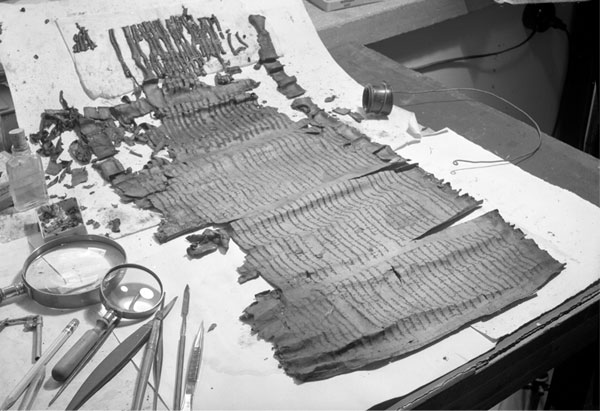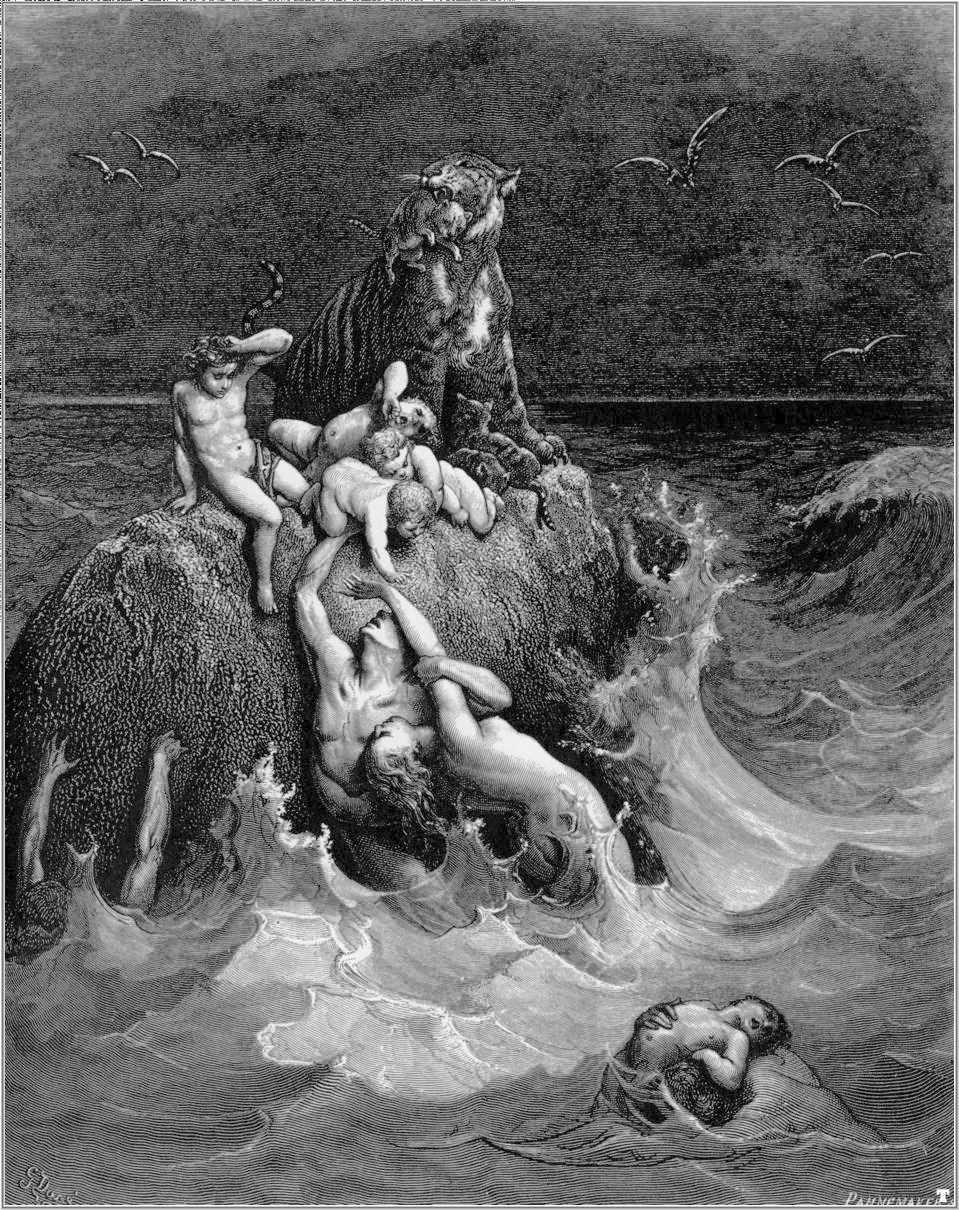|
Ashoriya
In the Mandaean calendar, Abū al-Harīs () or Ashoriya () is a Mandaean religious feast day celebrated on the 1st day of Sarṭana, which is the 6th month of the Mandaean calendar. Abu al-Haris is celebrated by Mandaeans as a day of remembrance commemorating the drowned people of Noah's flood. Grains and cereals are eaten as part of a special lofani (ritual meal), and another type of ritual meal called the dukrana is also prepared. Symbolism Mandaeans believe that on this day, Noah and his son Sam made the food of forgiveness of sins for the souls of those who died in the flood. The food of forgiveness consists of seven grains representing the seven days of the week, and from the grounding of these seven grains came the name Abu Al-Harees. (See Ashure or Noah's pudding.) See also *Genesis flood narrative The Genesis flood narrative (chapters 6–9 of the Book of Genesis) is a Hebrew flood myth. It tells of God's decision to return the universe to its pre- creation state of ... [...More Info...] [...Related Items...] OR: [Wikipedia] [Google] [Baidu] |
Mandaean Calendar
The Mandaean calendar is a 365-day solar calendar used by the Mandaean people.Drower, Ethel Stefana. ''The Mandaeans of Iraq and Iran''. Oxford At The Clarendon Press, 1937. It consists of twelve 30-day months, with five extra days at the end of Šumbulta (the 8th month). The Parwanaya (or Panja) festival takes place during those five days. There is no leap year therefore every four years all Mandaean dates (like beginnings of the months or festivals) move one day back with respect to the Gregorian calendar. Months Each month (''iahra'' or ''yahra'') is named after a constellation (''manzalta''). The Mandaic names of the twelve constellations of the Zodiac are derived from common Aramaic roots. As with the seven planets, the constellations, frequently known as the ''trisar'' (, "The Twelve") or ''trisar malwašia'' ("Twelve Constellations") in Mandaic texts, are generally not viewed favorably since they constitute part of the entourage of Ruha, the Queen of the World of Darkn ... [...More Info...] [...Related Items...] OR: [Wikipedia] [Google] [Baidu] |
Sartana (month)
Sarṭana () (variant: Ṣarṭana ), alternatively known as Tamuz or Tammuz (), is the sixth month of the Mandaean calendar. Ashoriya (Ashuriyah), a day of remembrance for the drowned people of Noah's flood, is celebrated on the first day of Sarṭana. Light fasting is practiced by Mandaeans on the 9th, 15th, and 23rd days of the month. It is the Mandaic name for the constellation Cancer Cancer is a group of diseases involving Cell growth#Disorders, abnormal cell growth with the potential to Invasion (cancer), invade or Metastasis, spread to other parts of the body. These contrast with benign tumors, which do not spread. Po .... It currently corresponds to December / January in the Gregorian calendar due to a lack of a leap year in the Mandaean calendar. References Months of the Mandaean calendar Cancer in astrology {{Mandaeism-stub ... [...More Info...] [...Related Items...] OR: [Wikipedia] [Google] [Baidu] |
Ashure
Ashure, Anoushabour, Noah's pudding or Trigo koço is a sweet pudding that is made of a mixture consisting of various types of grains, fresh and dried fruits, and nuts. Armenians make it as a Christmas pudding and for New Year's celebrations, where it is a centerpiece, and in the Balkans and Turkey, Muslims make the dish during the month of Muharram in which the Day of Ashura takes place. Sephardic Jews prepare the dish to celebrate the Jewish holiday of Tu BiShvat.Aylin Öney Tan, ‘''Be Merry, Around a Wheat Berry!''’, p. 352. In some Jewish, Christian, and Muslim traditions, a similar dish is prepared to commemorate a child's first tooth, or the passing of a family member. ''Ashure'' was traditionally made and eaten during the colder months of the year due to its heavy and calorie rich nature, but now it is enjoyed year-round. The dish is traditionally made in large quantities and is distributed to friends, relatives, neighbors, colleagues, classmates, and others, with ... [...More Info...] [...Related Items...] OR: [Wikipedia] [Google] [Baidu] |
Mandaeans
Mandaeans (Mandaic language, Mandaic: ࡌࡀࡍࡃࡀࡉࡉࡀ) ( ), also known as Mandaean Sabians ( ) or simply as Sabians ( ), are an ethnoreligious group who are followers of Mandaeism. They believe that John the Baptist was the final and most important prophet. They may have been among the earliest religious groups to practice baptism, as well as among the earliest adherents of Gnosticism, a belief system of which they are the last surviving representatives today. The Mandaeans were originally native speakers of Mandaic language, Mandaic, an Eastern Aramaic languages, Eastern Aramaic language, before they nearly all switched to Mesopotamian Arabic or Persian language, Persian as their main language. After 2003 invasion of Iraq, the invasion of Iraq by the United States and Multi-National Force – Iraq, its allies in 2003, the Mandaean community of Iraq, which before the war numbered 60,000–70,000 persons, collapsed with most of the community relocating to Iran, Syria ... [...More Info...] [...Related Items...] OR: [Wikipedia] [Google] [Baidu] |
Lofani
In Mandaeism, the lofani, laufani, or laufania () is a type of ritual meal commemorating the dead. It is etymologically related to the word '' laufa'' ("spiritual communion"), since lofani meals symbolize the connection of the souls of the living and the dead. The meal sometimes contains sacrificed sheep or dove meat.Drower, Ethel Stefana. 1937. ''The Mandaeans of Iraq and Iran''. Oxford At The Clarendon Press. The lofani is a minor ritual meal which does not require the presence of a priest. It is distinct from the ''zidqa brikha'' and ''dukrana'', which are two other types of ritual meal offered for the dead. During Abu al-Haris, a day of remembrance commemorating the drowned people of Noah's flood (on the first day of the 6th Mandaean month Sarṭana), grains and cereals are eaten as part of a special lofani. Gallery Lofani being prepared by Mandaean laypeople in Ahvaz, Iran: File:Parwanaya 2015 Ahvaz 20.jpg File:Parwanaya 2015 Ahvaz 21.jpg File:Lofani 01.jpg File:Lofani 0 ... [...More Info...] [...Related Items...] OR: [Wikipedia] [Google] [Baidu] |
Noah's Flood
The Genesis flood narrative (chapters 6–9 of the Book of Genesis) is a Hebrew flood myth. It tells of God's decision to return the universe to its pre- creation state of watery chaos and remake it through the microcosm of Noah's ark. The Book of Genesis was probably composed around the 5th century BCE; although some scholars believe that primeval history (chapters 1–11), including the flood narrative, may have been composed and added as late as the 3rd century BCE. It draws on two sources, called the Priestly source and the non-Priestly or Yahwist, and although many of its details are contradictory, the story forms a unified whole. A global flood as described in this myth is inconsistent with the physical findings of geology, archeology, paleontology, and the global distribution of species. A branch of creationism known as flood geology is a pseudoscientific attempt to argue that such a global flood actually occurred. Some Christians have preferred to interpret the ... [...More Info...] [...Related Items...] OR: [Wikipedia] [Google] [Baidu] |
Dukrana
In Mandaeism, the dukrana () or dukrania (plural form) is a type of memorial ritual meal commemorating the dead.Drower, Ethel Stefana. 1937. ''The Mandaeans of Iraq and Iran''. Oxford At The Clarendon Press. It is distinct from the ''zidqa brikha'' and '' lofani'', which are two other types of ritual meal offered for the dead. See also *Sacred food as offering *Eucharist * Koliva * Lofani * Laufa *Zidqa brikha In Mandaeism, the zidqa brikha (or ''zidqa brika''; ) is a type of ritual meal blessed by Mandaean priests. ''Zidqa'' means oblation and can also mean alms, while ''brikha'' means blessed.Drower, Ethel Stefana. 1937. ''The Mandaeans of Iraq and Ir ... * (''Dukhrana'' is a Syriac word referring to the Prayer of Memorial of the Living and the Dead.) References Mandaean ceremonial food and drink Mandaic words and phrases Funeral food and drink {{Mandaeism-stub ... [...More Info...] [...Related Items...] OR: [Wikipedia] [Google] [Baidu] |
Genesis Flood Narrative
The Genesis flood narrative (chapters 6–9 of the Book of Genesis) is a Hebrew flood myth. It tells of God's decision to return the universe to its pre- creation state of watery chaos and remake it through the microcosm of Noah's ark. The Book of Genesis was probably composed around the 5th century BCE; although some scholars believe that primeval history (chapters 1–11), including the flood narrative, may have been composed and added as late as the 3rd century BCE. It draws on two sources, called the Priestly source and the non-Priestly or Yahwist, and although many of its details are contradictory, the story forms a unified whole. A global flood as described in this myth is inconsistent with the physical findings of geology, archeology, paleontology, and the global distribution of species. A branch of creationism known as flood geology is a pseudoscientific attempt to argue that such a global flood actually occurred. Some Christians have preferred to interpret th ... [...More Info...] [...Related Items...] OR: [Wikipedia] [Google] [Baidu] |
Mandaean Holy Days
{{disambig ...
Mandean or Mandaean may refer to: * Mandaeism, a Gnostic religion * Mandaeans, the ethnoreligious group who follow the Gnostic religion * Mandean, the language family in West Africa known as the Mande languages See also * Mandaic (other), the variety of Aramaic and its alphabet used by the Mandaeans * Mande (other) Mande may refer to: * Mandé peoples of western Africa * Mande languages, their Niger-Congo languages * Manding languages, Manding, a term covering a subgroup of Mande peoples, and sometimes used for one of them, Mandinka people, Mandinka * Garo p ... [...More Info...] [...Related Items...] OR: [Wikipedia] [Google] [Baidu] |
Noah
Noah (; , also Noach) appears as the last of the Antediluvian Patriarchs (Bible), patriarchs in the traditions of Abrahamic religions. His story appears in the Hebrew Bible (Book of Genesis, chapters 5–9), the Quran and Baháʼí literature, Baha'i writings, and extra-canonical, extracanonically. The Genesis flood narrative is among the best-known stories of the Bible. In this account, God "regrets" making mankind because they filled the world with evil. Noah then labors faithfully to build the Noah's Ark, Ark at God's command, ultimately saving not only his own family, but mankind itself and all land animals, from extinction during the Great Flood, Flood. Afterwards, God makes a Covenant (biblical), covenant with Noah and promises never again to destroy the earth with a flood. Noah is also portrayed as a "tiller of the soil" who is the first to cultivate the vine. After the flood, God commands Noah and his sons to "be fruitful, and multiply, and replenish the earth." The sto ... [...More Info...] [...Related Items...] OR: [Wikipedia] [Google] [Baidu] |


